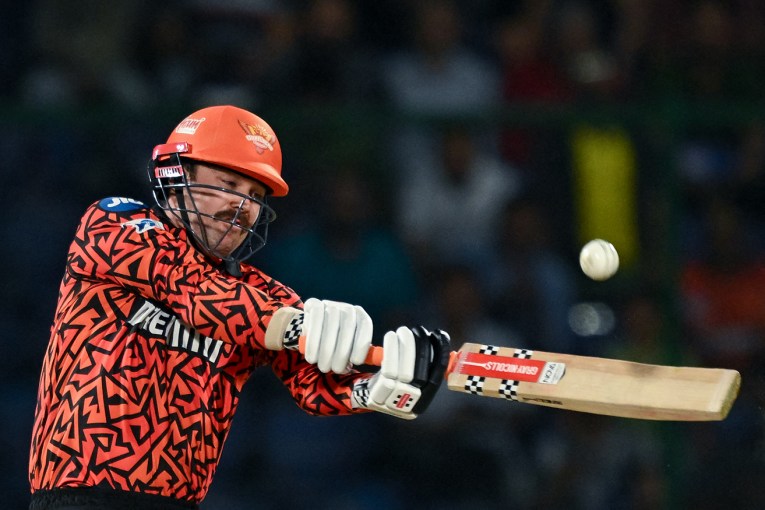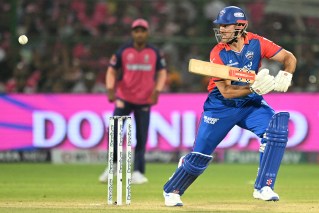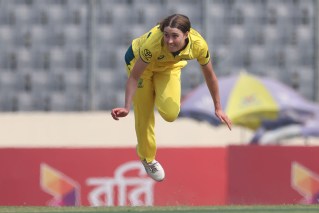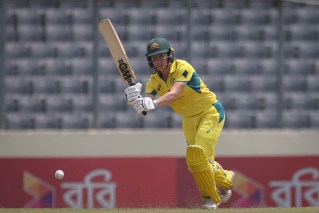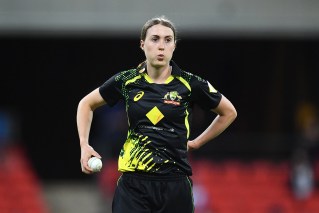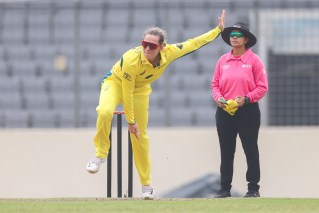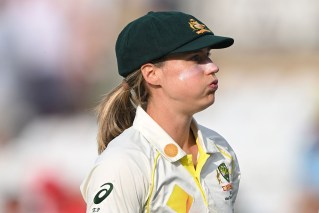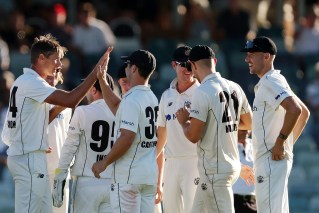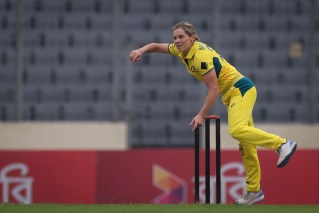Glenn Maxwell’s the answer, not Shaun Marsh

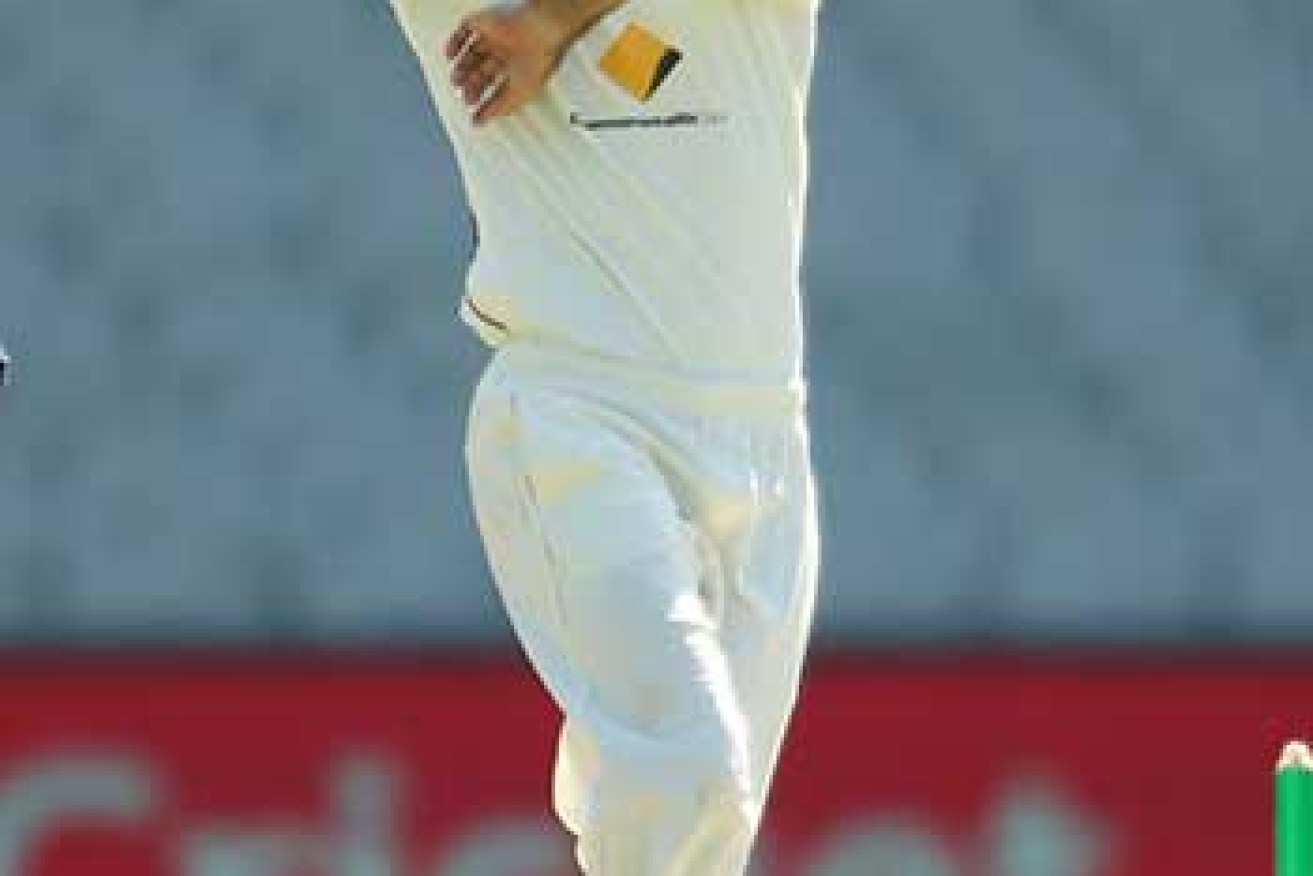
Maxwell's off-spin could have been handy in Adelaide. Photo: Getty
This week the Australian selectors misread the flight of the ball.
With the Chappell-Hadlee series already retained and the visit of the hapless West Indies to follow, Usman Khawaja’s injury presented them with an opportunity to look to the future.
This summer might be a walk in the park but tougher challenges wait. Like three Tests in New Zealand next year. And three in Sri Lanka.
• Johnson: Hughes death made me question aggression
• Six fiery spells that defined Mitchell Johnson
• Will this be the summer that kills Test cricket?
South Africa (and Pakistan) will then visit our shores before Test cricket’s toughest challenge: India in India.
Australia’s recent record there is dire. They last won a Test in the nation in October 2004 and have lost their last six – and eight of their last 10.
With all this in mind, Khawaja’s hamstring injury – which cruelly takes the classy, languid left-hander out of a side he is finally settled in – should have been the trigger for a positive selection.

Shaun Marsh comes back in from the cold yet again. Photo: Getty
The selectors were faced with four realistic options.
Western Australia’s Cameron Bancroft probably paid the price for scores of four and six in his last Sheffield Shield match.
He has just turned 23, though, and has time on his side. The fact he is an opener did not help, either, because David Warner’s partnership with Joe Burns won’t be broken up.
Then there’s Michael Klinger, the 35-year-old in such a rich vein of form that only Steve Smith and Kumar Sangakkara have scored more runs than him in the last year across all formats.
It seems he’ll need to not only bash the door down – but smash it to pieces – to get selected.
That leaves Glenn Maxwell and Shaun Marsh.
Both are selection risks – but Maxwell could be a key part of Australia’s Test side for many years to come. History shows that Marsh won’t.
Already dropped four times in a 15-Test career, it is not like Marsh’s average in the longest form (33.11) is markedly different to his first-class one (38.50).
All the statistics you could want – of which there are many given he made his first-class debut in the 2000-2001 season – show that while Marsh is a solid batsman, he is far from great.
His Sheffield Shield scores this season (15, 1, 2, 92, 64 and 33) don’t mount a compelling case for selection, either.
And while his elegant stroke play, highlighted by that classic cover drive, may have seduced selectors in the past, they should have got it right this time.

Michael Klinger’s great form has not been rewarded. Photo: Getty
Like the 32-year-old Marsh, Maxwell, who turned 27 last month, is unproven at Test level. But his upside is tremendous. While potential has become a dirty word for Marsh, Maxwell has it in spades.
That potential has been harnessed at international level in both the one-day and Twenty20 arenas, leaving the all-rounder, who has three Tests to his name, to take the next step.
Maxwell’s first-class batting average, of 41.55, is better than you might think.
Five centuries show he is more than a pinch-hitter and he just missed out on a sixth earlier this month, hitting 98 and 38 against a Western Australian side containing all of Bancroft, Klinger and Marsh at the MCG.
He has a good eye, a wide array of shots and times the ball like few others before him.
You’ll probably be questioning his technique or temperament at Test level. But, before you go on, remember what you were saying about Steve Smith a few years ago – and David Warner before that. Our new captain and vice-captain.
On pure talent, Maxwell is up there – if not more advanced – than South Africa superstar AB de Villiers, chief selector Rod Marsh has previously said.
Marsh has also said: “I’d love to have him in every side that I could.”
He was picked in the squad to tour Bangladesh, before that was cancelled earlier this year, so why wasn’t he preferred to Marsh?
It’s a question that becomes even more baffling when you consider what else Maxwell brings to the table.

Maxwell’s off-spin could have been handy in Adelaide. Photo: Getty
He is a handy off-spinner, as seven wickets in his three Tests shows.
His selection, on an Adelaide Oval deck that normally offers assistance for spinners, would give skipper Smith another option when Nathan Lyon needs a hand.
Maxwell is also a sensational fielder – perhaps the best we’ve seen since Ricky Ponting.
His razor-sharp reflexes mean he can field anywhere, and throwing down the stumps is something he doesn’t struggle with.
In comparison, Marsh, often hidden in the slips, struggles to throw the ball a long way.
And his litany of back and hamstring problems means Marsh finds it tough to bend and move quickly – hardly ideal for a slips fielder.
There’s also the future to think of. Khawaja will get his spot back when fit, meaning his replacement is likely to play just two Tests.
Of course, Australia would be better served giving them to the much younger Maxwell, who seems sure to feature on upcoming tours to spin-friendly Sri Lanka and India.
Who knows if Marsh will be in favour or out of favour by then? He’ll probably make runs in the next two Tests, given the flat pitches and opposition. But that won’t prove anything.
Disappointingly, Australia have taken the safe, easy and conservative decision.

